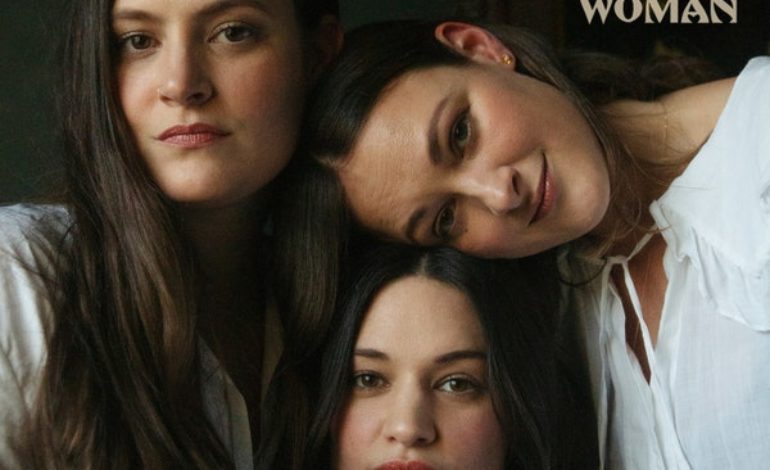

A civil war of producer versus artist
Even for a genre as apparently bare-bones as folk music, a producer can make all the difference. Throughout their first three records, the English trio of sisters has already worked with some of the biggest producers in the business, starting with the father-son duo of Glyn and Ethan Johns on their warm, intimate debut Dead and Born and Grown before embracing a fuller soundscape with the help of Justin Vernon on If I Was. Somehow a collaboration with Bon Iver, the man responsible for the impenetrable puzzle otherwise known as 22 A Million, is not the most disparate product of The Stave’s career. John Congleton is a fantastic producer and a good choice for a scruffier indie rock sound, yet his vision of Good Woman seems radically different from that of the Staves.
Even with all the drum machines, horns and keyboards crammed into If I Was, the record still ultimately plays to this band’s strengths. It’s an icy, ethereal listen conducive to their distinct harmonies. Rest assured that Good Woman still contains great vocal chemistry from Emily, Jessia and Camilla that is about worth the price of admission alone. It is impossible not to melt into the soothing cushion of vocals on “Next Year, Next Time,” “Sparks” or “Devotion.” Crescendos were never a major tool in their arsenal. Yet, the stomping, anthemic indie-rock hooks are here with the rapid-fire strumming of “Best Friend” and the Wye Oak-impression on “Careful, Kid,” and they crank up the vocal intensity to match this new compositional choice. A lot of the acoustics are still very pretty, from the curdling edge of “Failure” to the somber picking on “Nothing’s Gonna Happen,” and a great match for the sister’s delivery.
John Congleton is a legendary producer across a variety of genres. Yet, he works best with artists with a forceful personality like Phoebe Bridgers or sourness and edge to their material or delivery like Sharon Von Etten. Despite their effortless, one-of-a-kind vocal harmonies, the sisters do not have a distinct texture to their voice and they tend to get swallowed up by his busy-production. On the one hand, it makes sense to match intense music with some of their most blunt, bitter and raw lyrics to date as they defiantly proclaim themselves to be good women on the title track, lament missed opportunities on “Next Time, Next Year” and “Sparks” and pouring their heart out on in an intense argument on “Trying.”
The problem with Good Woman is that the synth work on “Devotion,” “Failure” and “Best Friend” is too clean and poppy to match any curdling anger in the content. At the same time, the spurts of queasy sub-bass or grinding industrial crud on “Careful, Kid” are going for a darker atmosphere on their own; these women are not Chelsea Wolfe, so it makes no sense for these sounds to be here. The increasingly synthetic feel to the hand-claps on “Devotion” and the living-room quality of the vocals on the first half of “Paralysed” are only further proof that Congleton and The Staves were not meant to be. The pieces of a spectacular lush indie-folk album are here; the problem is the person putting them together sounds like they are acting on their own with no input from the person who carved the pieces in the first place.
